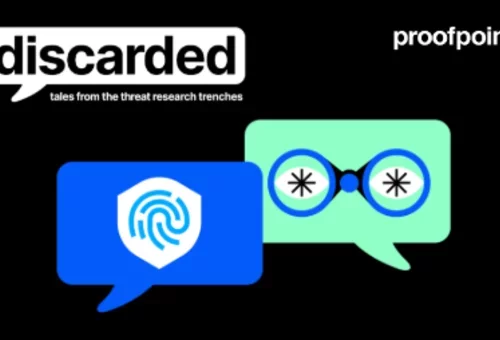English: Americas
Search
Login
- Platform
- Products
- Solutions
- Partners
- Resources
- Company
Search
Login
English: Americas
Platform
Products
Solutions
Partners
Resources
Company
Threat Protection
Stop all human-centric threats with industry-leading AI and global threat intelligence.
Data Security & Governance
Transform your data security and governance with a unified, omni-channel approach.
Data & SaaS Security Posture
Remediate data and SaaS exposures by understanding your risk posture.
Human Resilience
Unlock full user risk visibility and drive behavior change.
Premium Services
Leverage our strategic guidance and hands-on expertise to optimize your Proofpoint solutions.
All Products
Browse the full Proofpoint product suite.
More Proofpoint Products
Account Takeover Protection (ATO)
Detect, investigate and remediate account takeovers with sophisticated machine learning.
Adaptive Email DLP
Detect and prevent accidental and malicious email data loss with advanced ML and behavioral AI.
Archive
Securely store enterprise communications and search with deep data insights.
Automate
Streamline compliance supervision by reducing low-risk content and analyst review fatigue using machine learning models.
Capture
Collect and retain all digital communications for compliance, legal discovery, and long-term information retention.
CASB
Protect cloud apps and data with visibility, control, and threat prevention.
Collab Protection
Extend protection beyond email for all messaging and collaboration tools.
Core Email Protection
Protect your people from email threats using AI and global threat intelligence.
Discover
Process, analyze and cull more archived information in-house for e-discovery.
Data Security Posture Management (DSPM)
Discover, classify, and protect sensitive data across cloud and hybrid environments.
Email DLP & Encryption
Prevent email data loss and encrypt sensitive emails with granular and dynamic rules-based controls.
Endpoint DLP
Detect and prevent data loss at the endpoint.
Enterprise DLP
Detect and resolve data loss risk across email, cloud, and endpoints with centralized policies.
Email Fraud Defense
Protect your brand reputation, meet DMARC requirements to increase deliverability and identify lookalikes of your domains.
Insider Threat Management
Detect and prevent insider threats with deep visibility into risky behavior.
Patrol
Monitor and manage social media compliance with automated workflows and reporting.
Prime Threat Protection
Stop all human-centric attacks across multiple channels and stages with AI threat detection.
Secure Email Relay
Increase control and security for application-generated email and accelerate DMARC implementation.
Supervision
Monitor and supervise digital communications to enable compliance with SEC, FINRA, and other regulations.
Track
Track, audit, report on and reconcile all content in your capture stream for compliance.
ZenGuide
Strengthen human resilience through automated, risk-based learning.
Solutions by Use Case
How Proofpoint protects your people and data.
Ensure Acceptable GenAI Use
Empower your workforce with safe GenAI practices.
Authenticate Your Email
Protect your email deliverability with DMARC.
Combat Email and Cloud Threats
Protect your people from email and cloud threats with an intelligent and holistic approach.
Solutions by Industry
People-centric solutions for your organization.
Federal Government
Cybersecurity for federal government agencies.
State and Local Government
Protecting the public sector, and the public from cyber threats.
Comparing Proofpoint
Evaluating cybersecurity vendors? Check out our side-by-side comparisons.
Solutions By Use Case
How Proofpoint protects your people and data.
Change User Behavior
Help your employees identify, resist and report attacks before the damage is done.
Combat Data Loss and Insider Risk
Prevent data loss via negligent, compromised and malicious insiders.
Modernize Compliance and Archiving
Manage risk and data retention needs with a modern compliance and archiving solution.
Protect Cloud Apps
Keep your people and their cloud apps secure by eliminating threats and data loss.
Prevent Loss from Ransomware
Learn about this growing threat and stop attacks by securing ransomware's top vector: email.
Secure Microsoft 365
Implement the best security and compliance solution for Microsoft 365.
Solutions By Industry
People-centric solutions for your organization.
Higher Education
A higher level of security for higher education.
Financial Services
Eliminate threats, build trust and foster growth for your organization.
Healthcare
Protect clinicians, patient data, and your intellectual property against advanced threats.
Mobile Operators
Make your messaging environment a secure environment.
Internet Service Providers
Cloudmark email protection.
Small and Medium Businesses
Big-time security for small business.
Proofpoint vs. the competition
Side-by-side comparisons.
Resources
Find reports, webinars, blogs, events, podcasts and more.
Resource Library
Blog
Keep up with the latest news and happenings.
Webinars
Browse our webinar library to learn about the latest threats, trends and issues in cybersecurity.
Cybersecurity Academy
Earn your certification to become a Proofpoint Certified Guardian.
Podcasts
Learn about the human side of cybersecurity.
Threat Glossary
Learn about the latest security threats.
Events
Connect with us at events to learn how to protect your people and data from ever-evolving threats.
Customer Stories
Read how our customers solve their most pressing cybersecurity challenges.
Company
Proofpoint protects organizations' greatest assets and biggest risks: their people.
About Proofpoint
Careers
Stand out and make a difference at one of the world's leading cybersecurity companies.
News Center
Read the latest press releases, news stories and media highlights about Proofpoint.
AI, Privacy and Trust
Learn about how we handle data and make commitments to privacy and other regulations.
Environmental, Social, and Governance
Learn how we apply our principles to positively impact our community.
Support
Access the full range of Proofpoint support services.
Platform
Discover the Proofpoint human-centric platform.
Learn More
Proofpoint Satori
The power behind agentic security operations.
Proofpoint Nexus
Advanced AI and threat intelligence to detect threats and assess data risk.
Proofpoint Zen
Integrated control points to protect people and data, wherever work happens.
Search Proofpoint
Try searching for



